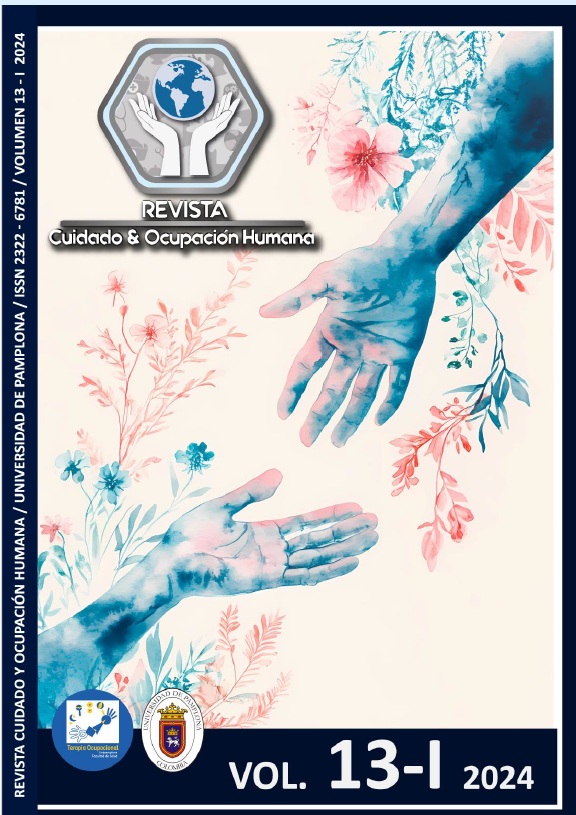Social Justice And Occupational Participation With The Diverse Population That Are Deprived Of Liberty In The Penitentiary Center Of Pamplona Norte De Santander
DOI:
https://doi.org/10.24054/coh.v13i1.4064Keywords:
Occupation, Social justice, deprivation, Participation, Occupational identity, Social change, Gender identityAbstract
This study aims to identify and analyze the
dependent variable in the development of social
and occupational justice among individuals
deprived of liberty at the Pamplona penitentiary
center, located in Norte de Santander. A mixed
methodological approach was used. First, a
literature review was conducted, including
scientific articles, doctoral theses, and
undergraduate research projects found in electronic
databases such as PubMed, Science Direct, Scielo,
and Journal Plus, during the period from February
to June 2021. Keywords were defined in both
Spanish and English to guide the search.
Additionally, a qualitative technique was applied
using the Occupational Performance History
Interview-II (OPHI-II), which allows for an in
depth understanding of the occupational identity
and life trajectory of the inmates. This tool includes
a semi-structured interview, three rating scales
(Occupational Identity, Occupational Competence,
and Occupational Behavior Settings), and a format
for collecting narrative data. The interview is
designed to facilitate a conversational space where
participants can share their occupational life
stories, providing valuable insights into their social
and occupational experiences. The study is framed
within the discipline of Occupational Therapy and
seeks to contribute to a deeper analysis of the
social and occupational conditions of a diverse
prison population. Ultimately, it aims to promote
social justice within the penitentiary system by
identifying the most prevalent needs of this group.
Downloads
References
• Castellanos, M. Á. (2014). METODOLOGIA DE LA INVESTIGACION. Obtenido de METODOLOGIA DE LA INVESTIGACION: https://www.uca.ac.cr/wp-content/uploads/2017/10/Investigacion.pdf
• Evelyne Durocher, B. E. (s.f.). Journal of Occupational Science. Obtenido de Journal of Occupational Science: https://www.tandfonline.com/doi/abs/10.1080/14427591.2019.1616359?journalCode=rocc20
• Gary Kielhofner, T. M. (2019). DOCPLAYER. Obtenido de OPHI-II ENTREVISTA HISTÓRICA DEL DESEMPEÑO OCUPACIONAL: https://docplayer.es/75929577-Ophi-ii-entrevista-historica-del-desempeno-ocupacional.html
• MCE. Marisol Maranto Rivera. (2015). Fuentes de Información. Obtenido de UNIVERSIDAD AUTONOMA DEL ESTADO DE HIDALGO: https://repository.uaeh.edu.mx/bitstream/bitstream/handle/123456789/16700/LECT132.pdf
• Méndez, D. V. (2019). Fuentes de información y recursos electrónicos en los laboratorios de Farmacotecnia. Obtenido de Fuentes de información y recursos electrónicos en los laboratorios de Farmacotecnia: http://revistacienciaysalud.ac.cr/ojs/index.php/cienciaysalud/article/view/19/49#:~:text=Seg%C3%BAn%20Silvestrini%2C%20M.,de%20informaci%C3%B3n%20son%20%E2%80%9C%5B%E2%80%A6%5D&text=Las%20fuentes%20de%20informaci%C3%B3n%20primarias,resultado%20de%20un%20t
• METODOLOGIA CUALITATIVA. (s.f.). Obtenido de http://www.ujaen.es/investiga/tics_tfg/enfo_cuali.html

